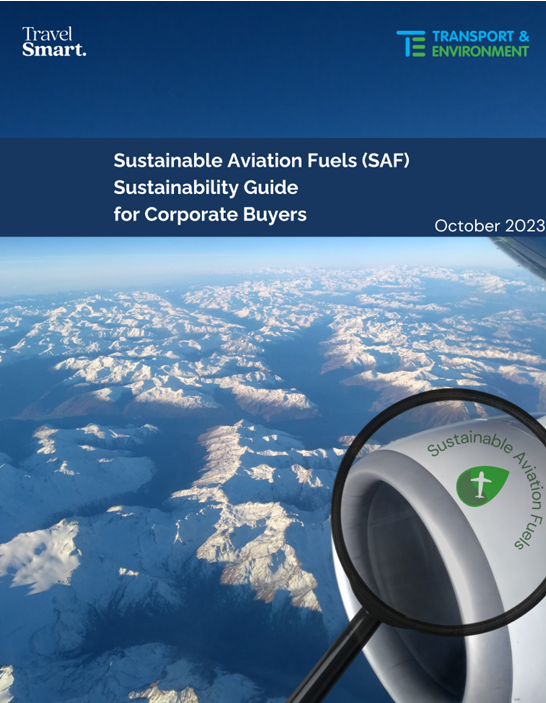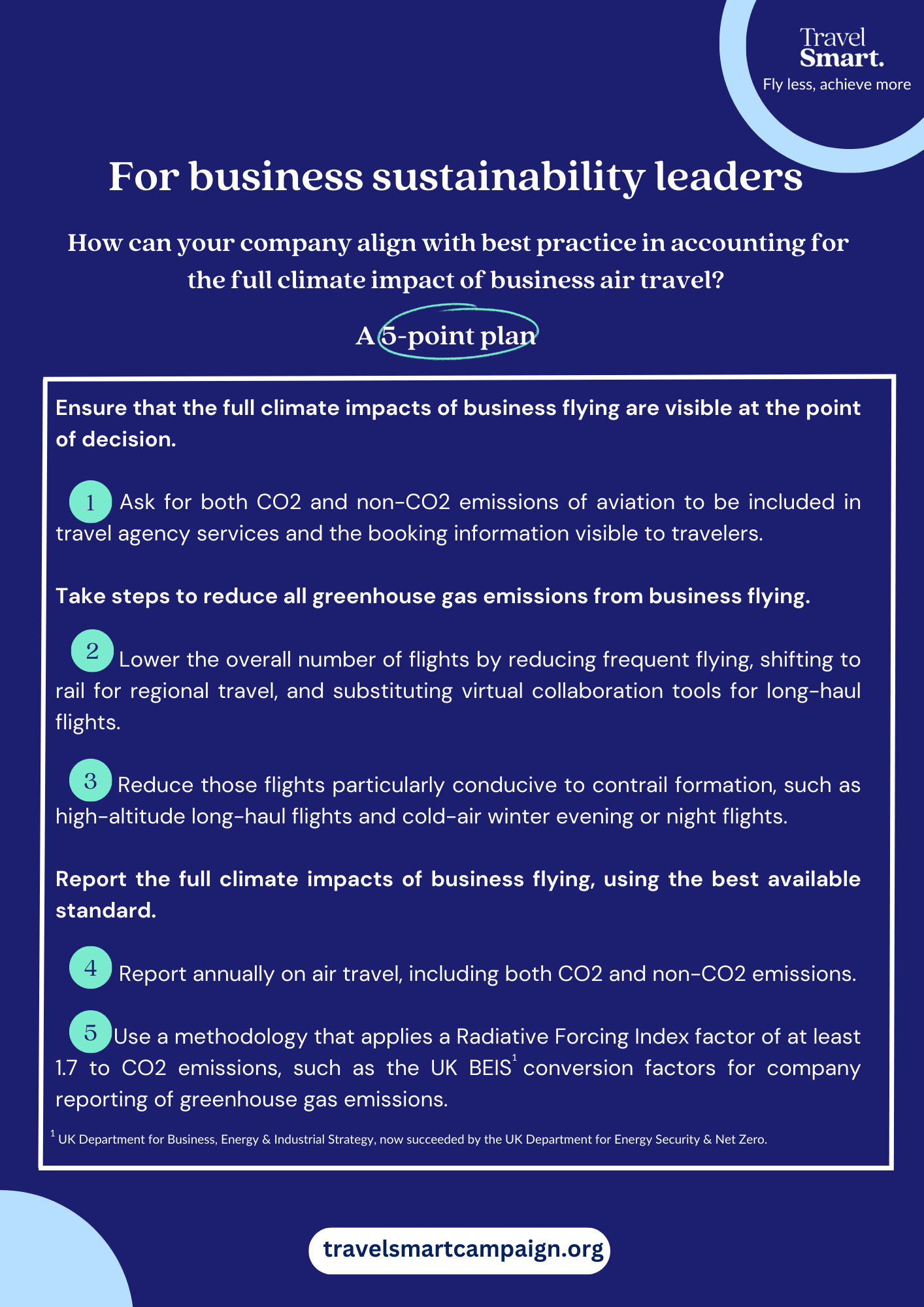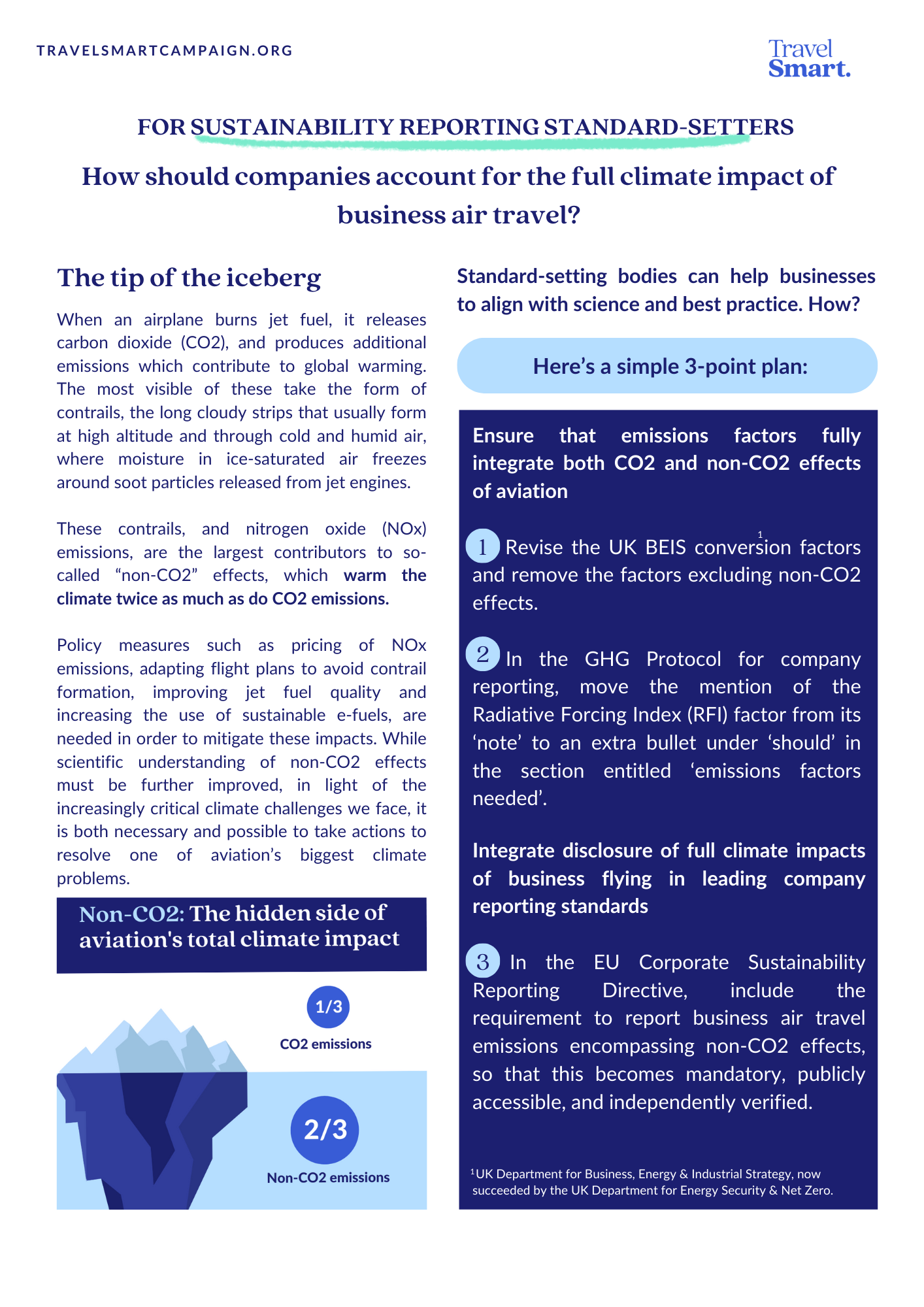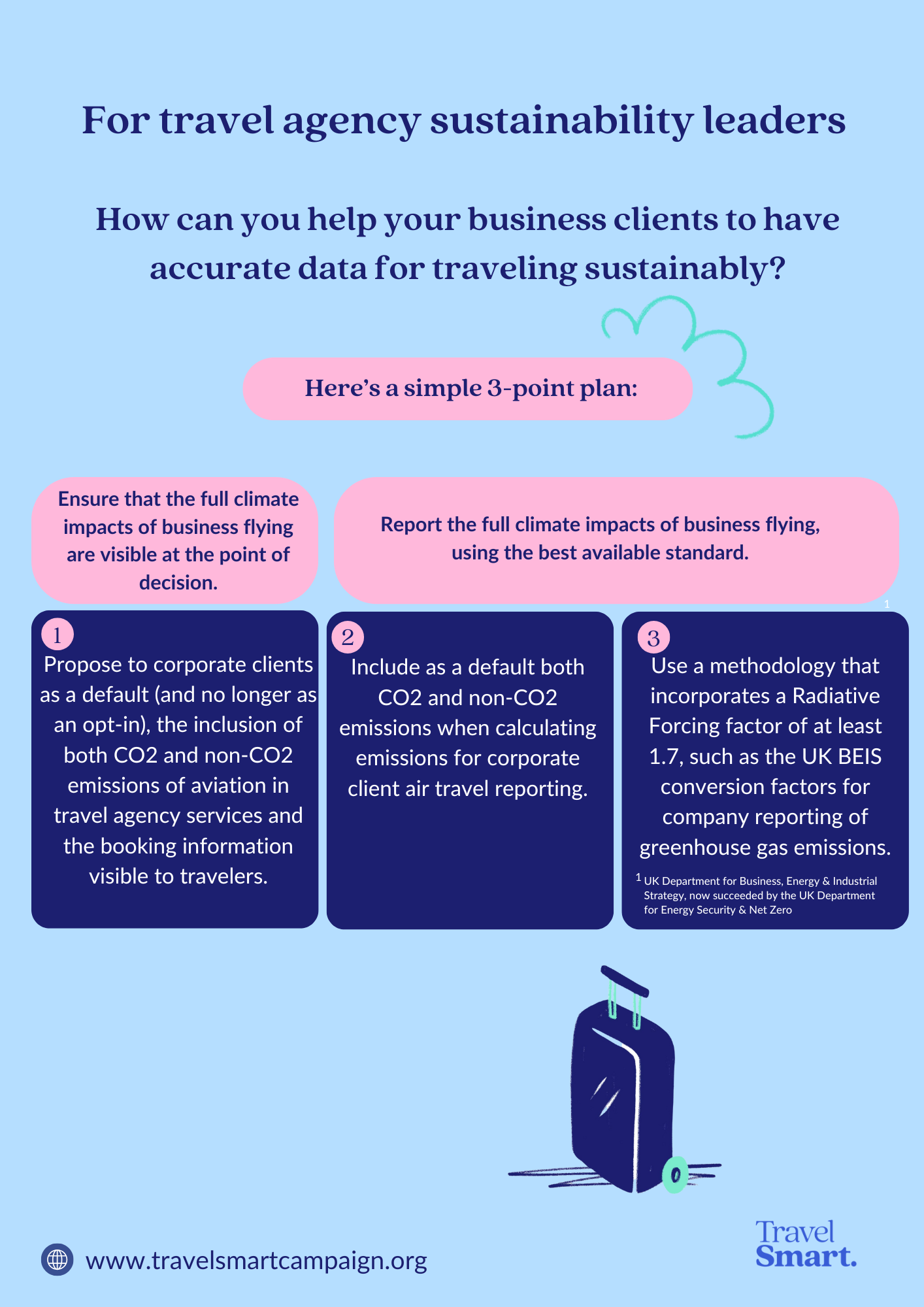Travel policy toolkit
Discover our tools and travel policy examples from Travel Smart coalition members
Having a robust travel policy is key in reducing business travel emissions. It provides guidance for employees on best practices for sustainable travel whilst helping the business meet its environmental goals, save money and protect employees’ well-being.

Are you a business seeking to develop a purposeful travel policy?
Find out how in these guides...
From plane to train – checklist by Anders Reizen coalition and Natuur & Milieu.
The steps in the checklist will help you make international rail
travel possible in your organisation. Get inspired by the tips and practical examples from
other businesses.
View here.
Campaign for Better Transport has prepared a toolkit designed to help organisations – small or large, private companies or public sector – adopt greener transport options.
View here.
The Coalition for Sustainable Business Travel brings together frontrunners who underline the importance of more sustainable business travel and are committed to an ecologically responsible travel policy
View here.
This knowledge guide offers various options to redesign your organization’s flight policy and thereby make international business travel more sustainable.
It has been developed by the Travel Different Coalition (Anders Reizen) in The Netherlands together with the NGO Natuur & Milieu and the Climate Neutral Group.
View here.
This guide, in Spanish, was developed by Eco-union and Viaje en Verde, and aims at showing how companies and organisations
can reduce their climate footprint.
It offers a roadmap to develop a sustainable travel policy that will enable to reduce emissions from corporate travelling.
Read more here.

Our Travel Practices

AEF

AirClim

Campaign for Better Transport

CBalance

Ecodes

Ecologistas en Acción

Eco-union

Transform Scotland

T&E






